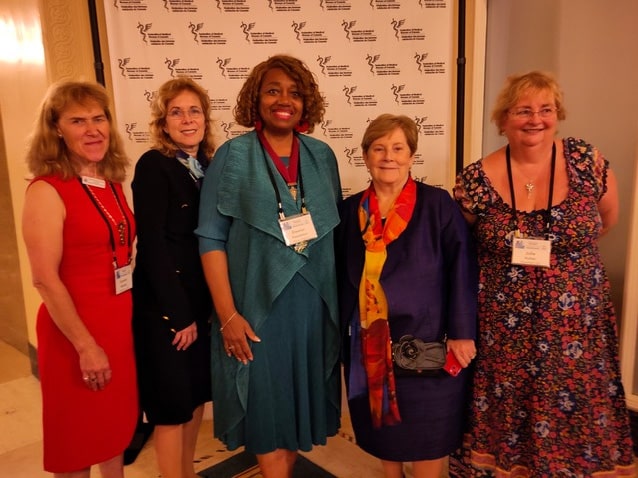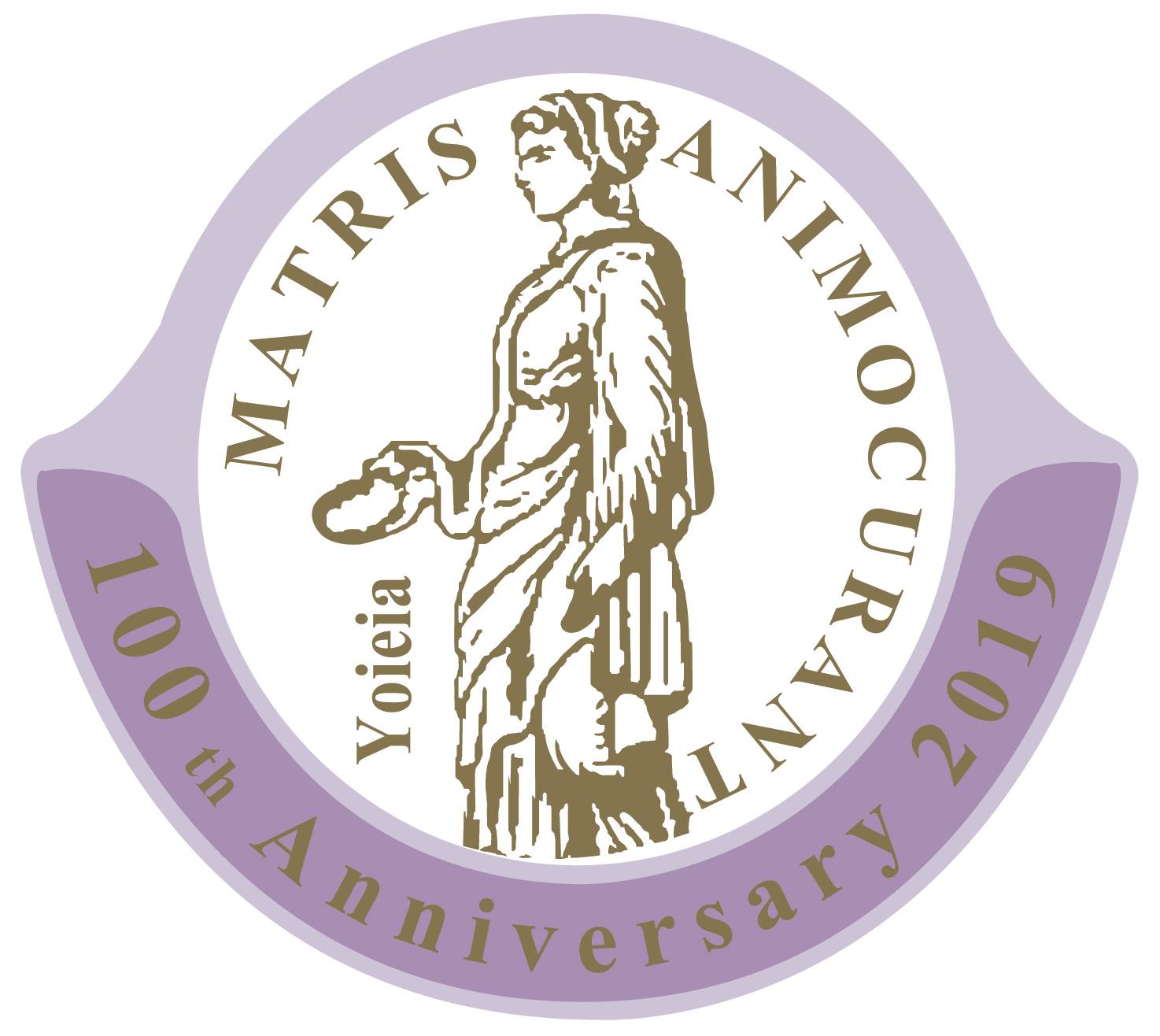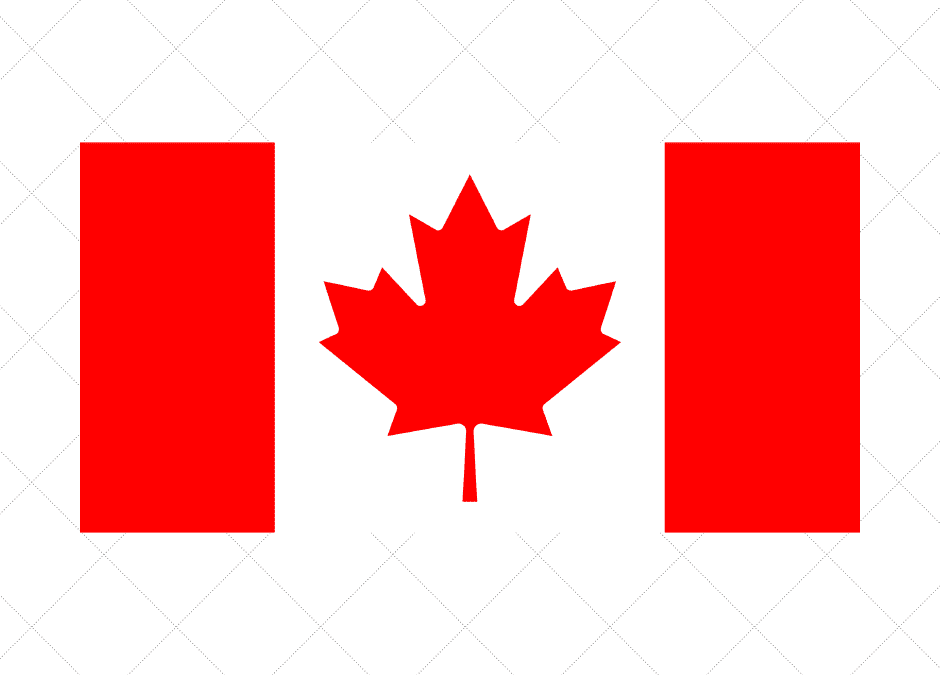Catalysts for Change: 100 Years of Medical Women in Canada aptly described the discussions at the Conference. The FMWC’s advocacy for patients, ourselves and society–past, present and future–was highlighted. Voices Rock, the women physician choir, entertained us at the gala, while Canada’s Chief Public Health Officer, Dr. Theresa Tam, spoke to us about leading the country during the Covid-19 pandemic. The gala saw 49 members of FMWC honoured with a King Charles III Coronation Medal. An opening reception had representatives from the federal political parties bring greetings and hear about the FMWC’s role as the voice for women’s health. A centennial scarf was designed by Dr. Janet Dollin, and represents the six founders of FMWC with the theme of transition from seed to flower. The Centennial book was written to highlight all the past presidents and other interesting information about FMWC.
Thank you to Dr. Eleanor Nwadinobi, MWIA President, and Dr. Connie Newman, MWIA VP for North America, along with Professor Scarlett McNally, President of the MWF U.K., and Dr. Julie Rutter, past MWF National Coordinator, for sharing in the celebrations.
Our Presidency has moved from Dr. Kimberly Williams to Dr. Ramneek (Rummy) Dosanjh.
October 1-7 was FMWC’s HPV Prevention week under the capable leadership of Dr. Vivien Brown, past MWIA VP for North America. Covid-19 saw immunization rates fall and if we are to meet the WHO targets to eliminate cervical cancer, HPV immunization is crucial.
With the new availability of options to prevent RSV disease in infants, Dr. Vivien Brown and Dr. Shelley Ross led a RSV task force and developed a white paper that can be found at: https://fmwc.ca/content/user_files/2024/06/FMWC-Maternal-RSV-Task-Force-White-Paper-_-Final-June-27th.pdf
FMWC meeting in 2025 will be 27-28 September in Toronto, Ontario. Hope to see you there.

Fig 1. left to right Drs. Scarlett McNally, Connie Newman, Eleanor Nwadinobi, Shelley Ross and Julie Rutter at the centenary celebrations.

Fig 2. FMWC centennial scarf
Report on 100th Anniversary Celebrations of the Canadian Medical Women
From Dr Julie Rutter, past UK National Coordinator
The Federation of Canadian Medical Women celebrated their 100th anniversary in the splendid surroundings of the Chateau Laurier hotel in Ottawa this September. MWF President, Scarlett McNally, MWIA President Eleanor Nwadinobi and I were amongst the attendees.
The conference was themed on Advocacy with sessions on history, family violence, AI and climate change. Another session discussed issues concerning indigenous women and there were updates on various clinical issues mainly concerning aspects of menopause.
Of particular interest to me were the sessions on the gender pay gap and family planning for female doctors in Canada. These were interesting because it appears that Canadian female doctors are fighting battles that were largely won in the UK years ago ie considering when the least disruptive period is in a career to have a baby and women working largely in low paid specialties. Similarly, there was a presentation on Primary Care in Canada lamenting the lack of full access to Primary Care and talking enviously about the UK system, ironic given the current state of General Practice here.
The social programme was excellent with a reception at the historic Rideau Club and a Gala Dinner at the hotel.
The Canadian doctors impressed with their passion, vibrancy and ambition. We were made to feel very welcome. I would like to give particular shout-outs to organisers Drs Shelley Ross and Mamta Gautam for their hospitality and Dr Gail Beck for ferrying me around.
I would strongly encourage all members who are interested in the wider aspects of women in medicine and women’s health to consider participating in MWIA events, it gives an opportunity to make new friends and gain a better appreciation of other’s problems and what we have.
From Professor Scarlett McNally, president of MWF (UK)
The centenary conference of FMWC was excellent – there are so many shared experiences for women doctors across the globe. As well as discussions, the conference included a wide range of medical updates. It feels as if health would be far better across society if there were more women doctors in positions of influence. There are huge positive benefits to health of connections, basic health messages and skilled physicians who can coordinate complexity and multi-morbidity. We still need macho operations, interventions and pharmaceuticals. But health is not only about health care, and it felt to me that the vibrant women in the room would be far better at planning and delivering future health than those currently in charge.

